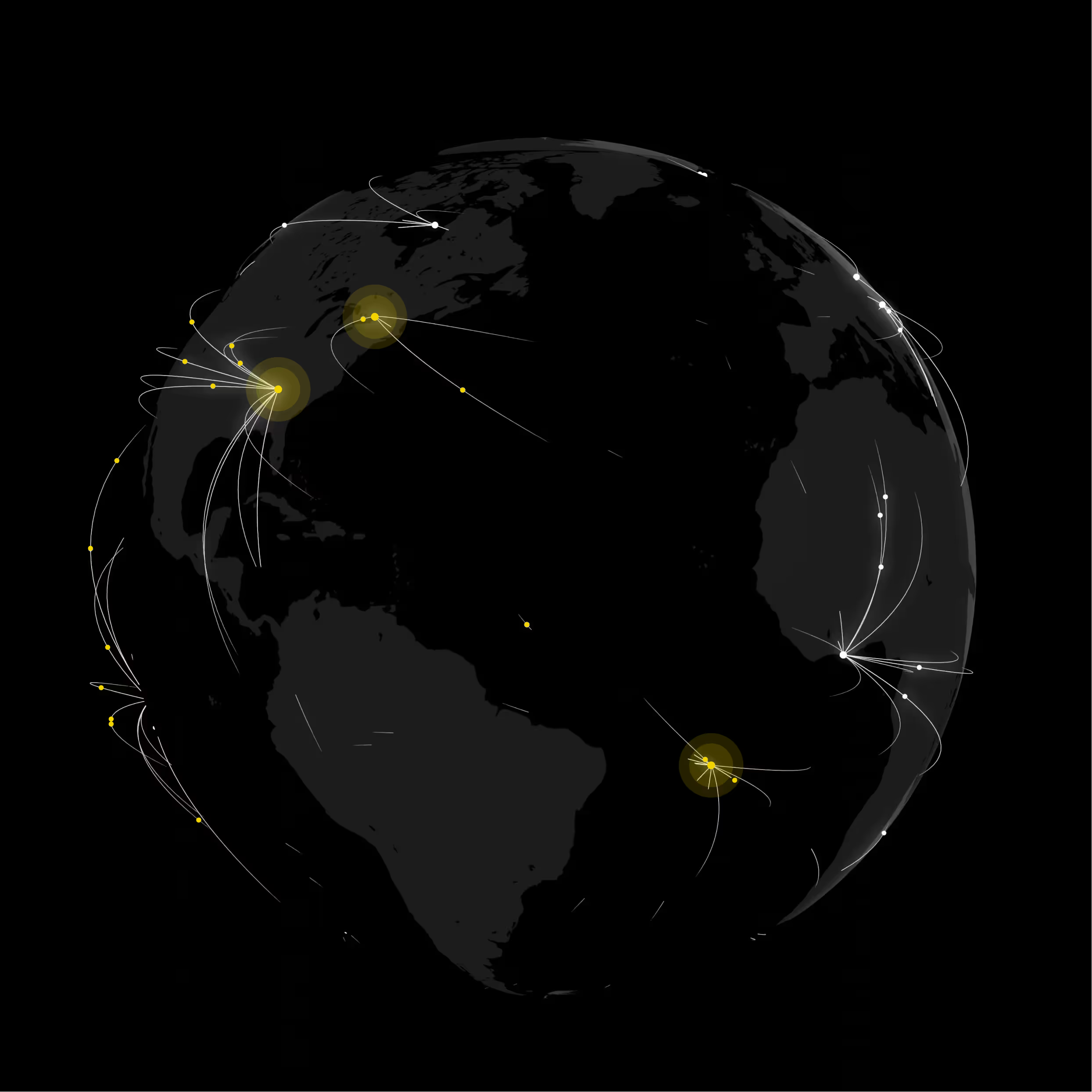Situational Awareness Brief: Middle East Conflict - October 16, 2024
Updated October 27, 2024
Introduction
The Middle East has been an active conflict zone for the past year, beginning with Hamas’ attack on Israel on October 7, 2023. The conflict quickly expanded to include incidents in Gaza, Lebanon, Syria, Yemen, and Iran. While the conflict has been continuously active for the past year, recent events, including Israel’s assassination of Hezbollah leader Hassan Nasrallah and Iran’s firing of 200 ballistic missiles at Israel, have escalated tensions and increased the risk of a hotter and broader regional conflict.
As the U.S. enters its Presidential Election season, the Middle East conflict plays a central role in its political discourse. Any dramatic escalations of hostilities or changes in the dynamics of the conflict can spark unrest inside the U.S. and potentially interfere with the election. This report summarizes current events in the Middle East to provide context to security teams focused on the election, as well as provides safety recommendations for travelers and U.S. citizens.
Current Situation
Israel is currently actively engaged in both Gaza (Hamas and Palestinian Islamic Jihad) and Southern Lebanon (Hezbollah), conducting daily strikes from the air and sea, as well as with ground forces. Additionally, on October 2, Iran launched a missile strike on Israel, firing nearly 200 ballistic missiles. Israel retaliated with a targeted air struke in the early morning of October 26th.
Gaza
After the October 7, 2023 Hamas terrorist attack on Israel, which claimed the lives of over 1,200 civilians, Israeli forces have actively engaged in Gaza, focusing on neutralizing the continued threat posed by Hamas and rescuing hostages taken during the attack. While Hamas’ capabilities have been severely degraded by Israeli forces and many key leaders have been killed over the past year (including Ismail Haniyeh, Hamas’ Political Bureau chair), it still maintains operational capabilities, including firing rockets into Israel. And, of the 251 hostages taken on October 7th by Hamas, 97 remain in captivity.
On October 17th, Israeli officials confirmed that they killed Yahya Sinwar the previous day during a routine military mission. Sinwar was the leader of Hamas in Gaza from February 2017 until his death, and a key architect in the October 7 (2023) terrorist attack on Israel. Following the assassination of Ismail Haniyeh in July 2024, Sinwar also headed Hamas’ political bureau.
Although the situation is still developing, Sinwar’s death could serve as a significant milestone in the Israel-Hamas war. With its senior leadership decimated, Hamas’ remaining leaders may be more amiable to a ceasefire. US officials viewed Sinwar as a major impediment to peace negotiations and his death may end the deadlock between Hamas and Israeli negotiators. More immediately, however, his loss will likely impact Hamas’ strategic plans and fighting efficacy while boosting Israeli morale.
Lebanon
Tensions between Israel and Hezbollah have been steadily growing since October 7, 2023. On October 8, 2023, immediately following Hamas’ attack on Israel, Hezbollah fired upon Israel from Lebanon in solidarity with Hamas. Since then, Israeli Defense Forces (IDF) and Hezbollah have continued to strike each other along the border on an almost daily basis. Beginning in September 2024, Israel pivoted its focus towards its border with Lebanon, executing a special operation resulting in the explosion of Hezbollah-issued pagers and walkie-talkies and then launching Operation Northern Arrows against Hezbollah on September 23rd. This conflict has led to the displacement of 110,000 Lebanese from Southern Lebanon and 60,000 Israeli civilians from Northern Israel, respectively.

As part of this recent campaign, Israel has stepped up the volume and intensity of its attacks on Hezbollah, targeting key leaders, as well as its large cache of rockets and missiles throughout Lebanon. In early October, Israel sent ground forces into Southern Lebanon with the stated goal of pushing Hezbollah north of the Latani River.
Yemen
Since October 7, 2023 the Iranian-back Houthis have launched multiple missile attacks against Israel, while Israel has retaliated with airstrikes. Following two days of Houthis missile attacks on Israel on September 27 and 29th, Israel attacked the Houthis in Yemen on September 29th, targeting the port city of Hodeidah and a power plant.
Iran
Iran is a state-sponsor of multiple terrorist actors in the region, including Hamas, Hezbollah, and the Houthis. This network of terrorist groups is often referred to as the “Axis of Resistance,” as it aims to limit US and Israeli influence in the Middle East. The Islamic Republic provides money, weapons, and training with the strategy of surrounding Israel. On July 31st, Israeli personnel were able to assassinate Ismail Haniyeh, the political leader of Hamas, in a military guesthouse in the Iranian capital of Tehran. The incident served to both warn and embarrass the Iranian regime and its security forces while at the same time eliminating one of Israel’s most important foes.
Conflict Actors
Hezbollah
Background of Hezbollah
Hezbollah is a Lebanese-based Shia Islamist group with both political and military arms. Founded in 1982 in the model of Iran’s Islamic revolution, Hezbollah’s stated aims are to destroy Israel and rid the Middle East of Western involvement. Although the group began as a rogue organization within Lebanon, it now has more formally integrated into Lebanese society, holding 15 seats in Lebanon’s Parliament.
Hezbollah is considered to be the largest non-state military actor worldwide. Backed by Iran, they have amassed an arsenal of tens of thousands of rockets and missiles and claim to have over 100,000 fighters in their ranks. In violation of UN Security Council resolution 1701, Hezbollah has heavily fortified Southern Lebanon’s border with Israel with weapons, personnel, and subterranean bunkers and tunnels. In recent years, Hezbollah has developed combat experience through its involvement in the Syrian civil war.
Hezbollah acts as a “state within a state,” often providing social services as a means of solidifying political support in Lebanon and legitimizing its terrorist operations. This is akin to how organized crime groups often entrench themselves within communities. The organization is heavily backed and funded by Iran. Iran’s Islamic Revolutionary Guard Corps (IRGC) was critical to the formation of Hezbollah, providing funds, advisors, and training to the group as it formed in the late 70’s and early 80’s. As Israeli operations continue against Hezbollah, tensions with Iran will also escalate and any IRGC personnel embedded with Hezbollah commanders are at an extremely high risk of being killed by IDF airstrikes.

In 1983, Hezbollah orchestrated the bombings of the US embassy in Beirut and barracks housing both French and American marines. Combined, these bombings killed 368 people. One of Hezbollah’s core goals is to eliminate Western presence within the Middle East. Continued US political and military support for Israel has increased the organization’s hostile views towards Americans. Although Hezbollah is currently distracted by increased IDF activity and the decimation of its command staff, it may consider high-profile attacks as a means of restoring its reputation after a string of defeats.
Readers are cautioned that Hezbollah operatives operate outside of Lebanon and have even had a presence on US soil. A recent US intelligence threat assessment states that Hezbollah “maintains the capability to target U.S. persons and interests in the region, worldwide, and, to a lesser extent, in the United States.”
- In 2017, one operative was arrested in New York after surveilling law enforcement and military sites.
- Another operative, later within the same year, was arrested in Detroit after investigating the availability of explosives for use on the Panama Canal. Said operative was also believed to have surveilled both US and Israeli sites.
- In April 2014, two operatives were arrested in Bangkok (Thailand) while planning to attack Israeli tourists.
- In 2012, Hezbollah operatives bombed a bus in Burgas, Bulgaria. The attack killed five Israeli tourists and their Bulgarian bus driver.
- On July 18th, 1994, Hezbollah operatives in Buenos Aires (Argentina) conducted a bomb attack against the Asociación Mutual Israelita Argentina (AMIA) Jewish community center. The attack killed 85 people and injured over 300.
- On March 17th, 1992, the Israeli embassy in Buenos Aires was bombed. The suicide attack killed 29 people and injured 242 others. Although the Islamic Jihad Organization took credit for the attack, Hezbollah operatives were later charged with orchestrating the attack.
- Argentinian courts have also alleged that Iran was heavily involved with both the 1992 and 1994 bombings.
Recent events involving Hezbollah
October 13, 2024
- A Hezbollah drone struck Binyamina, a town in northern Israel, injuring over 60 people. The IDF is investigating how the drone evaded detection and interception measures. Four IDF soldiers were also killed during this attack.
- On the same day, it was reported that the US would deploy advanced anti-missile systems to Israel, as well as 100 soldiers to operate them, to help protect against possible Iranian missile attacks.
- Another notable incident on the 13th was the entrance of Israeli tanks into a UN peacekeeping base. The IDF states that it was a last resort to evacuate wounded soldiers injured by an anti-tank missile. The UN forces, however, portrayed it as an act of antagonism after the base refused to turn off its lights. Israeli Prime Minister, Benjamin Netanyahu, has repeatedly asked the UN to evacuate its peacekeeping force, stating that UN peacekeepers are being used as “human shields” that Hezbollah uses to its advantage by launching attacks in proximity to UN positions (which limits how the IDF can respond). However, at the time of reporting, the UN has denied the Prime Minister’s requests.
September 27
Israeli Defense Forces (IDF) successfully eliminated Hassan Nasrallah, secretary-general of Hezbollah. This, combined with Israeli strikes within Beirut and ground IDF operations within Lebanon, has greatly weakened Hezbollah’s capabilities and command structure.
- In response to Nasrallah’s neutralization, Iran launched a barrage of approximately 200 ballistic missiles at Israel. The attack was largely ineffective due to US and Israeli countermeasures (e.g., the Iron Dome), but claimed the life of one Palestinian in Jericho. It also failed to disrupt Israeli air operations in the area. There was significant private property damage across Israel, though, totaling up to $53 million USD.
- An imminent Israeli and American response to the attack is likely to occur. Details on the nature and scope of this response, however, are nebulous. As of October 9th, the US and Israel appear to be in closer agreement on the plan of action.
- tensions with Iran have also escalated due to the killing of Ismail Haniyeh, chairman of Hamas’ political bureau, on July 31st.
- Minutes before the Iranian middle attack began, two Palestinian men from Hebron committed a mass shooting in Tel Aviv. The attack killed 7 people and left 16 injured.
September 17-18
Israel launched a sophisticated and highly advanced remote attack by detonating explosives embedded in pagers and walkie talkies utilized by Hezbollah personnel.
- The blasts injured approximately 3,000 people and killed at least 37.
- Israel’s Mossad and Shin Bet are believed to have laced the devices’ lithium batteries with the explosives, making them difficult to detect within the casing.
- Details regarding the attack are still developing and it remains uncertain where Israeli intelligence personnel were able to infiltrate the supply chain of the devices.
July 27
A Hezbollah rocket struck a soccer field in the town of Majdal Shams, located in the Golan Heights (Northern Israel). 12 Druze children were killed by the explosion, and over 30 more people were injured. The Druze are an ethno-religious minority group among Israel’s Arab citizens.
- Although Hezbollah denied attacking the town, Forensic evidence indicates that the weapon was an Iranian Falaq-1rocket, which is exclusively used by Hezbollah.

Houthis
Israel is also in conflict with the Houthis in Yemen, who frequently attack Israel and international shipping vessels in the Red Sea as an act of solidarity with Palestine. The Houthis are a Specially Designated Terrorist Group, as well as a rebel force challenging Yemen’s government. Outside of these terrorist and rebellion activities, the Houthis are known for engaging in piracy.
Background on the Houthis
The Houthis began coalescing during the 1990s. As a Zaydi Shiite group, it formed in part as a resistance to Yemen’s Sunni-majority government and Saudi Arabian influence in the area (Saudi Arabia is largely Sunni Muslim). Also at the core of the Houthis’ ideology are extreme anti-American and anti-Israeli views. Part of the group's flag translates to “death to the USA, death to Israel, curse the Jews.”
The group receives support in the form of arms, drones, and advisors from Iran’s IRGC. A Congressional Research Service report assesses that “Houthi military capabilities include ballistic missiles, cruise missiles, rockets, and unmanned aerial and underwater/surface vehicles, in addition to conventional and unconventional air and ground forces. With this support, the Houthis act as a proxy for Iran and commit attacks on behalf of Iran’s regime. The Washington Institute assesses that Iran “can now exploit new opportunities by cooperating with other axis players in Iraq as well as with Russia, potentially offering Yemen as a platform from which Iran can deploy advanced weapons against Israel and the West without drawing direct retaliation…”
Recent Events Involving The Houthis
October 10, 2024
The Houthis struck a Liberian-flagged chemical tanker in the Red Sea. From 10/23 to the present, Houthi rebels have targeted over 80 vessels in the Red Sea, specifically targeting those with ties to Israel, the US, and the UK.
October 7
The group fired two missiles at Jaffa (Israel) that were intercepted by the IDF.
October 4
US forces struck 15 Houthi targets in Yemen to limit the terrorist group’s offensive capabilities. The strikes were conducted, in part, as a response to a recent Houthi attack against US naval vessels that involved cruise missiles and drones (all of which were intercepted). The US and its international partners, such as the UK and Israel, have been consistently engaging Houthi threats in the Red Sea since 10/7/23 to protect vital shipping lanes and civilian vessels.
July 19
a Houthi drone struck an apartment building in Tel Aviv, killing one person and injuring four others. The apartment building was located near the US embassy. The drone was a long-range Iranian model. Like Hezbollah, the Houthis are backed by Iran’s regime.
An analysis of historic Houthi drone use, produced by ACLED, can be found here.
Recommendations
Base Operations analysts assess that conflict in the Middle East will continue to escalate. The IDF is almost certain to continue striking Hezbollah leadership and targeting terrorist infrastructure (e.g., tunnels and arms depots). At the same time, Hezbollah will also certainly continue artillery and drone strikes on Israel. What’s less certain is whether the IDF will sustain ground operations, as it did in Gaza, or degrade Hezbollah sufficiently enough to force a ceasefire.
The other significant question is whether Israel will retaliate against Iran for their October 2 ballistic missile attack, and if so, when. If Israel responds, and depending on the size and scope, the conflict could escalate quickly.
Readers with personnel in Lebanon are recommended to evacuate personnel along the border with Israel and central Beirut, as well as any area with a significant Hezbollah presence. The organization has the heaviest control over “parts of Beirut, southern Lebanon, and the eastern Bekaa Valley region.”
- Readers are also cautioned that Lebanon only has one major airport and flights out of the country may be severely scarce. The US has made arrangements to increase the number of flights out of Lebanon and even prepared military options to evacuate citizens. Israel has stated that it’s committed to avoiding any strikes that may impact Lebanon’s Beirut-Rafic Hariri International Airport or major ports. However, it should be noted that Hezbollah (like Hamas) is known for using both civilians and critical infrastructure as shields. The IDF may have to strike those areas from which Hezbollah is launching attacks.
- EASA (the European Union Aviation Safety Agency) initially advised European airlines to avoid Israeli and Lebanese airspace due to increased military activity. Outside of the risk of being accidentally hit by ordinance, aircraft can be susceptible to various forms of electronic warfare (e.g., GPS or communications jamming) that could lead to navigation errors. Although it was reported that the EASA guidance on Israeli airspace was lifted on October 9th, Delta Airlines announced on October 15th that it would suspend flights between JFK and Tel Aviv until March 31st.
Readers with personnel in Israel are advised of the increased risk of terrorist attacks, such as the recent mass shooting in Tel Aviv. Any persons traveling through Israel are advised to know where the closest bomb shelter is at all times. At the time of reporting, Google Maps allows users to search for the nearest bomb shelter across Israel.
Israel also has several applications for rocket alerts:
Readers are cautioned that fake alert applications have been established to steal information and download malicious software. Please always vet any downloads or applications before installing them.
Please note: This conflict is continuously evolving. After reading this report, readers should regularly check verified and reliable news sources for the most up-to-date information.
Impact on U.S. Elections
The U.S. Presidential Election will take place on November 5, 2024, and the Middle East conflict plays a key role in the election and political debate.
- Conflict-related protests have caused unrest in key cities and college campuses.
- Some Democrats are pressuring Democratic candidate Kamala Harris to withhold future arms shipments to Israel.
- A major escalation, such as further conflict between Israel and Iran could change the election outcome.
Readers are encouraged to read Base Operations comprehensive U.S. Election Security Assessment for a detailed analysis of election-related threats.
Footnotes
6: Ibid.
8: https://crsreports.congress.gov
Takeaways

Join 1100+ security leaders getting new ideas on how to better protect their people and assets.








